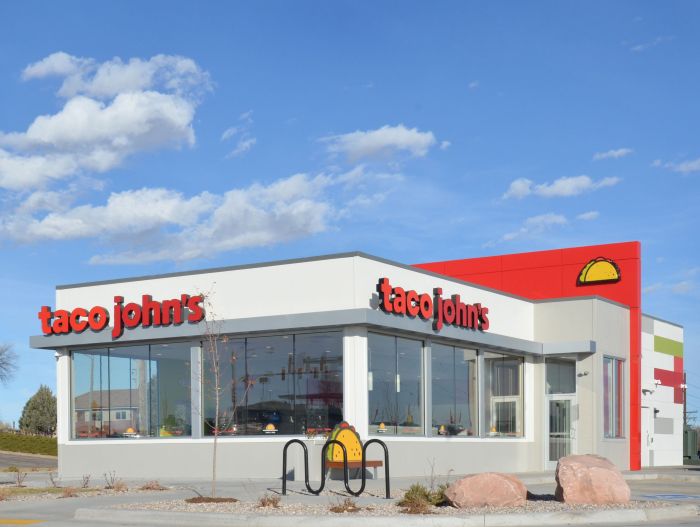Contributed by Tom Perella, VP/Technology, Taco John’s International
The best restaurant technology doesn’t shout – it listens. As technology and AI continue to play greater roles in efficient operations, many restaurants are implementing larger technology stacks to keep up with current trends and remain competitive. While this may seem like the best way to stay on the cutting-edge in the industry, the key is to implement technology with intention and strategy.
When technology is implemented thoughtfully, and quietly, operations aren’t disrupted, guests stay happy, and the flavor stays front and center. At Taco John’s, we partner with technology platforms that work quietly in the background, integrating seamlessly into our systems to support operations.
Digital transformation is here to stay, making it essential for brands to embrace digital channels in ways that align with teams, guests, and brand identity. After decades in hospitality, I’ve watched technology weave into every corner of operations—and I’ve learned that guests connect best with brands when innovation works quietly in the background, elevating the experience without ever disrupting it. Below are the tips that I’ve found useful in integrating technology seamlessly.
What Brands Are Missing
In today’s race to implement the latest and greatest tools – whether it’s self-service kiosks, mobile ordering apps, or AI integrated drive-thrus – many brands are laser focused on creating the most efficient experience for guests. However, they often lose sight of the experience of team members, who can easily feel overwhelmed with tech-takeovers and complex systems. When team members are underprepared, technology can become a bottleneck rather than an efficient solution.
It’s crucial that, as a brand, you take team members at every level into account before implementing new processes. At Taco John’s, we analyze the usability of new tools before rolling out any new technologies. We beta test them with team members in real-world settings to gather feedback which ensures we optimize rollouts to oversee any errors or friction.
Innovation is important, and brands should look to integrate innovative tools into their processes. However, these tools need to be fully vetted, beta tested, and integrated with franchisees, team members, operations, and the guest experience in mind.
Transforming Operations Without Overwhelming Staff
Successful restaurant technology should feel more like support than a spotlight. When implemented properly, technology can ease the workload for team members, allowing them to focus more of their attention on the guest experience, rather than back-of-house operations.
Taco John’s recently completed a pilot test using AI-powered drive-thru ordering and they are partnering with Presto Voice technology to make the solution available systemwide optionally. Data from the test showed positive trends in strengthening speed, accuracy, and ticket size with guests. Testing also revealed that team members are able to spend more time communicating with guests at the pickup window, leading to a more seamless and efficient ordering process.
Proactive maintenance and monitoring help team members stay ahead of the curve to avoid unexpected errors. Ensuring teams are prepared to manage new technology and taking a team-centric approach is key in transforming operations. When the technology is tested and ready, and team members are able to easily adjust operations, that is when brands will thrive.
Prioritizing Flexible and Scalable Solutions
Seamless integration of technology is key when building a brand to scale – it helps brands grow their operations without the need to rebuild processes from the ground up or sacrifice quality or guest experiences.
Over the past several years, Taco John’s has undergone significant growth, and much of that expansion is attributed to our operationally sound, scalable technology. Systems that can be adapted across different store formats and market conditions are crucial in maintaining a consistent guest experience from location to location. Loyalty programs and mobile ordering platforms, as well as cloud-based POS systems, are easily scalable aspects of technology stacks that involve the same intuitive interface and allow for consistent oversight, regardless of location. Easy to use technology that can be implemented at scale and operated via cloud-based systems is invaluable in building out systems.
Balancing Innovation with Authenticity
While the restaurant industry is fast-moving and technology is changing every day, it’s impossible to ignore innovation. To remain competitive and stay relevant in oversaturated industries, brands must tap into new technologies and innovations, but it’s critical that brands innovate in ways that are authentic to their mission.
Growth and Financial Prudence
At Taco John’s, as we accelerate expansion and embrace innovation, we also remain disciplined about the fundamentals that drive lasting success. Growth is only meaningful when franchisees are positioned to thrive, and that requires balancing innovation with financial discipline.
While technology and operational enhancements are vital to staying competitive, we remain mindful of the impact that high initial equipment costs and recurring software fees can have on unit economics. Not every ‘latest and greatest’ tool delivers sustainable value, and we believe in balancing innovation with responsibility to ensure long-term profitability for franchisees.
We will remain focused on technology that enhances the personal connection that our guests feel toward our brand. As technology continues to evolve, so do the expectations of guests, team members, and brands alike. Staying ahead means innovation with intent, and by prioritizing both innovation and prudence, the brand continues to strengthen its foundation for growth while ensuring franchisees can operate profitably and sustainably.
Tom Perella is the VP/Technology for Taco John’s. Joining the team in March 2025, he brings more than 20 years of experience in retail technology, integrating digital platforms into restaurants across the QSR industry.



